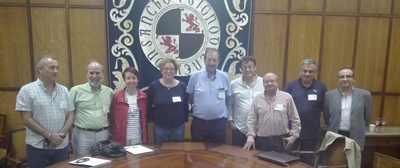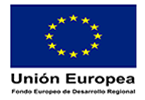
The environment conservation targeted to maintain its quality and habitability is one of the most important issues in the society nowadays. In help, the named "green chemistry" or better "good chemistry" is involved in developing eco-benign chemical compounds with social useful properties and highly selective, high yielding processes that require very mild and economical conditions. Among them, homogeneous catalysis mediated by transition metals is underlined. Water is the most abundant solvent in the Earth's crust and would be the best one that could be used. Water is abundant, easily recyclable and has no significant environmental drawbacks. However, in spite of its advantages there is not much information on how to use it as a solvent in synthetic processes catalyzed by metallic compounds. Also, neither a well developed water coordination chemistry nor the effect of aqueous solutions of metals in living organisms and the environment are sufficiently known.
Water is reaction medium where it is possible a large number of different kind of reactions that some time happen simultaneously. Additionally, water uses to participate in the reactions as a reagent or intermediate, giving rise to different products depending of small variations in the reaction conditions (pH, temperature, etc.). Any additional knowledge on the water/metal-complexes system is expected to have a large and deep social and industrial importance, affecting deeply to the economy. The proposed network brings together the majority of Spanish research groups interested in studying the reactivity and behavior of metal ions and their complexes in water, both for the development of eco-good synthesis and for determining how they could affect to living beings, and their possible use as medicines, as well as to the environment.
The 9 members of the network share common research interests, focusing on the study of water chemistry and the properties of water-soluble coordination compounds and their use from homogeneous catalysis in water to new drugs. No doubt the synergy of the experience that characterizes each of the groups involved will allow progress towards the development of new complexes soluble in water with significant properties in catalysis, as biological agents, as photochemical compounds and ultimately in achieving greater knowledge of the water / metal-compounds interaction.

